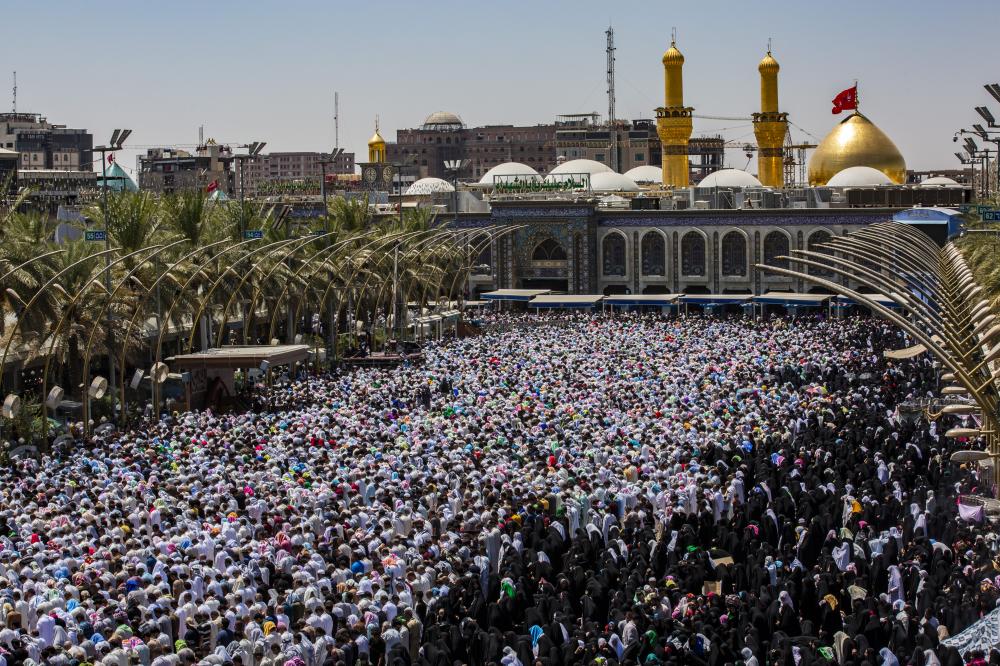Arafat Day (Day of Arafah)
Overview:
Date of Celebration: Arafat Day falls on the 9th day of Dhu al-Hijjah, the 12th month of the Islamic lunar calendar. This day occurs during the annual Hajj pilgrimage in Mecca and is immediately followed by Eid al-Adha, the Festival of Sacrifice.
Significance: Arafat Day is one of the most significant days of the Islamic year, especially for those performing the Hajj pilgrimage. It is the day when Muslims gather at the Plain of Arafat just outside of Mecca for worship, reflection, and repentance. The day commemorates the moment when Prophet Muhammad delivered his final sermon during his last pilgrimage and is considered a day of forgiveness and mercy.

Historical Context:
The Day of Arafat in Islamic Tradition: According to Islamic tradition, the Day of Arafat marks the culmination of the Hajj pilgrimage. Pilgrims gather at Arafat, a vast plain about 20 kilometers southeast of Mecca, where they engage in prayer and supplication throughout the day. This day holds special significance as it is the day when Prophet Muhammad delivered his final sermon, emphasizing the unity of the Ummah (global Muslim community), the sanctity of life, and the importance of worshiping Allah alone.
The Last Sermon of Prophet Muhammad: During his final pilgrimage in 632 CE, Prophet Muhammad addressed the Muslims gathered at Arafat with a sermon that is remembered as one of the most crucial messages in Islamic history. In his sermon, he stressed equality, justice, and the protection of rights, famously stating:
"I leave among you two things, and if you hold fast to both of them, you will never go astray: the Book of Allah and the Sunnah of His Messenger."
This sermon is a lasting guide for Muslims and underscores the core values of the faith.
Cultural and Religious Practices:
- The Gathering at Arafat (Wuquf):
Wuquf (standing) at Arafat is the central event of the day for those performing Hajj. Pilgrims journey to the Plain of Arafat, where they spend the entire day in prayer and supplication. This practice, known as the Day of Standing, symbolizes humility and submission to Allah. It is believed that Allah forgives the sins of those who sincerely seek His mercy during this time.
- Fasting on Arafat Day (For Non-Pilgrims):
Muslims who are not performing Hajj are highly encouraged to fast on Arafat Day. The Prophet Muhammad is reported to have said that fasting on this day expiates the sins of the past year and the coming year, making it a highly meritorious act for non-pilgrims.
3. Special Prayers and Supplications:
Throughout Arafat Day, Muslims engage in extra prayers and supplications to seek forgiveness, protection, and guidance from Allah. They also send Salawat (blessings upon the Prophet Muhammad) as a way of honoring his teachings and seeking spiritual closeness.
4. The Sermon and Preaching at Arafat:
An important ritual during Hajj is the sermon (khutbah) delivered by an Imam at Arafat. This sermon serves as a reminder of the teachings of Islam, the Prophet’s final message, and the values of justice, equality, and compassion that should guide every Muslim.
5. Pilgrims' Final Preparations for Eid al-Adha:
After spending the day at Arafat, pilgrims move to Muzdalifah where they collect pebbles for the Ramy al-Jamarat ritual, which will be performed during the following days of Eid al-Adha. The night spent in Muzdalifah marks the transition from Arafat Day to the celebratory rituals of Eid al-Adha.
6. Reflection on Unity and Equality:
Arafat Day is also a time for deep reflection on the core values of unity and equality in Islam. Pilgrims, dressed in simple white garments known as ihram, stand together at Arafat, symbolizing the equality of all Muslims before Allah. This act embodies the spirit of the Prophet’s final sermon, reinforcing the importance of justice, respect, and compassion among all members of the Ummah.
Significance for Muslims:
Arafat Day is one of the most sacred and pivotal days in Islam. For Hajj pilgrims, it is the culmination of their spiritual journey—a time when standing in prayer at Arafat is believed to cleanse sins and renew faith. For non-pilgrims, fasting and praying on this day offer an opportunity for personal reflection, seeking forgiveness, and reaffirming one’s devotion to Allah.
This day emphasizes the values of humility, repentance, and divine mercy, while also stressing the unity of the global Muslim community. It serves as a reminder that all Muslims are equal in the eyes of Allah, united in their pursuit of righteousness and mercy.
Conclusion:
Arafat Day is a deeply significant occasion for Muslims worldwide, whether they are performing Hajj or not.
It is a day filled with prayer, supplication, fasting, and spiritual renewal—a time for Muslims to seek Allah's forgiveness and to reflect on their own lives. For pilgrims, it marks the pinnacle of the Hajj experience, while for others it is an opportunity to recommit to the core values of Islam.
Ultimately, Arafat Day reminds all Muslims of their unity and shared purpose, reinforcing the bonds of the Ummah and their collective commitment to living a life in accordance with the teachings of Prophet Muhammad.